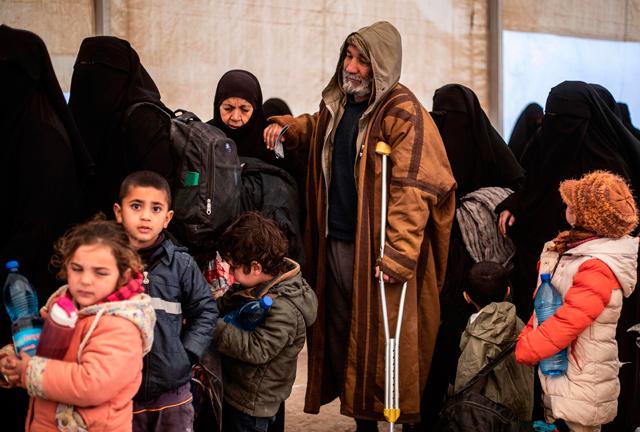- International News
- Sun-2021-01-31 | 03:14 pm

A car bomb in the Turkish-controlled region of Afrin in northern Syria on Saturday killed five people including a child, a British-based war monitor said.
The car, which contained explosives, blew up in a neighbourhood where workshops are located, killing the child, three other civilians and an unidentified person, the Syrian Observatory for Human Rights said.
Observatory chief Rami Abdel Rahman said the death toll could rise as 15 other people were wounded, some of them in critical condition.
Turkish forces and their Syrian proxies grabbed the region of Afrin from Kurdish fighters in 2018.
Afrin and other areas in northern Syria under Turkish control are regularly rocked by such bombings.
There is usually no claim for them, although Turkey routinely blames Kurdish fighters it accuses of being "terrorists” linked to its outlawed Kurdistan Workers’ Party (PKK).
In early January, another explosives-rigged vehicle killed one civilian in the town of Jindires in the Afrin region. The same day, a car bomb near a vegetable market in the Turkish-held border town of Ras Al Ain killed five people including two children.
In November, a car bomb went off near a bakery in Afrin, killing three people and wounding 16 others.
It has evolved into a complex conflict involving extremists and foreign powers including Turkey, which has grabbed swathes of Syrian territory along its southern border during several military campaigns.
Meanwhile, talks on a new constitution for Syria hit a brick wall this week, with the United Nations mediator concluding Friday: "We can’t continue like this.”
The fifth round of discussions between 15 representatives each from President Bashar Assad’s government, the opposition and civil society, staged all week at the UN in Geneva, concluded with little to no progress.
"I told the 45 members of the drafting body that we can’t continue like this. That the week has been a disappointment,” said UN envoy Geir Pedersen, voicing his frustration.
"I set out a few things I thought we should be able to achieve before we started this meeting — and I’m afraid we did not.”
The Syrian Constitutional Committee (SCC) was created in September 2019 and first convened a month later.
The tentative discussions are aimed at rewriting the war-torn country’s constitution. It is hoped the talks could pave the way towards a broader political process.
Pedersen said opposition proposals for moving the process forward this week were rejected by Assad’s delegation.
He then made his own proposals, which were accepted by the opposition — but also rejected by the government.
Pedersen’s plan was a mechanism for finding areas of agreement and driving those forward into a drafting process.
"We need this mechanism in place,” the Norwegian diplomat told a press conference.
"This is not a debating committee. You can continue debating forever.
"You need to move this in a manner where the members themselves start to identify areas where they agree or disagree, and then move into the drafting phase.”
Pedersen is set to brief the UN Security Council on February 9.













